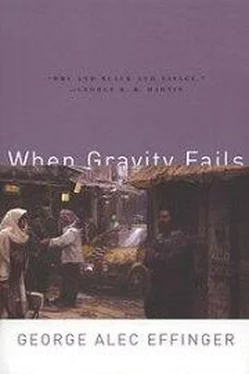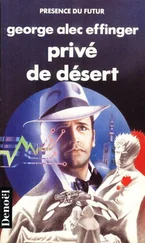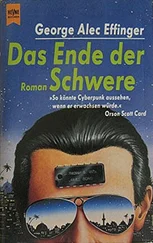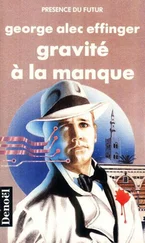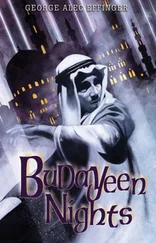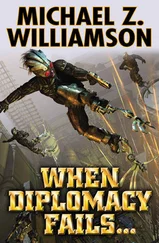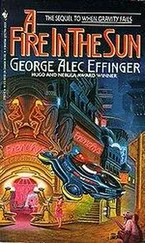Suddenly she got a faraway, inspired look in her eyes. I knew something fascinating had occurred to her, and I knew it most likely meant bad news for me. “Oh, Allah and the Virgin Mary in a motel room,” she said softly. That had been a favorite blasphemy of her father’s, I think. “This is working out just like the hexagram said.”
“The hexagram.” I had put that I Ching business out of my mind almost before Yasmin had finished explaining it to me.
“Remember what it said?” she asked. “About not being afraid to cross the great water?”
“Yeah. What great water?”
“The great water is some major change in your life. Getting your brain wired, for instance.”
“Uh huh. And it said to meet the great man. I did that. Twice.”
“It said to wait three days before beginning, and three days before completing.”
I counted up quickly: tomorrow, Saturday, Sunday. Monday, when I was going to have this thing done, would be after three days. “Oh, hell,” I muttered.
“And it said that nobody would believe you, and it said that you had to keep up your confidence during adversity, and it said that you didn’t serve kings and princes but higher principles. That’s my Marîd.” And she kissed me.
I felt ill. There was absolutely no way I could get out of the surgery now, unless I started running and began a new life in some new country, shoving goats and sheep around and eating a few figs every couple of days to stay alive like the other fellahin .
“I’m a hero, Yasmin,” I said, “and we heroes sometimes have secret business to attend to. Got to go.” I kissed her three or four times, squeezed her right silicone tit for luck, and stood up. On the way out of Frenchy’s I patted Indihar’s ass, and she turned and grinned at me. I waved good-night to Dalia. Blanca I pretended didn’t even exist.
I walked down the Street to the Silver Palm, just to see what people were doing and what was going on. Mahmoud and Jacques were sitting at a table, having coffee and sopping up hummus with pita bread. The Half-Hajj was absent, probably out kicking gigantic heterosexual stone-cutters around for the hell of it. I sat down with my friends. “May your and so forth, and so forth,” said Mahmoud. He was never one to worry about formalities.
“Yours too,” I said.
“Getting yourself wired, I hear,” said Jacques. “A crucial decision. A major undertaking. I’m sure you’ve considered both sides of the matter?”
I was a little astonished. “News travels fast, doesn’t it?”
Mahmoud raised his eyebrows. “That’s what news is for,” he said, around a mouthful of bread and hummus .
“Permit me to buy you some coffee,” said Jacques.
“Praise Allah,” I said, “but I feel like something stronger.”
“Just as well,” said Jacques to Mahmoud. “Marîd has more money than the two of us together. He’s on Papa’s payroll now.”
I didn’t like the sound of that rumor at all. I went to the bar and ordered my gin, bingara, and Rose’s. Behind the bar, Heidi grimaced, but she didn’t say anything. She was pretty — hell, she was one of the most beautiful real women I’d ever met. She always fitted into her well-chosen clothing the way some of the debs and changes wished they could, with their store-bought bodies. Heidi had wonderful blue eyes and soft, pale bangs. I don’t know why, but bangs on young women always make me jittery. I think it’s the hebephile in me; if I examine myself closely enough, I find hints of every objectionable quality known to man. I’d always wanted to get to know Heidi really well, but I guess I wasn’t her type. Maybe her type was available on a moddy, and after I got my brain wired …
While I was waiting for her to mix my drink, another voice spoke up about twenty feet away, beyond a group of Korean men and women who would soon learn, no doubt, that they were in the wrong part of town. “Vodka martini, dry. Pre-war Wolfschmidt’s if you’ve got it, shaken and not stirred. With a twist of lemon peel.”
Well, now, I said to myself. I waited until Heidi came back with my drink. I paid her and swirled the liquor and ice in tight, counterclockwise circles. Heidi brought my change; I tipped her a kiam, and she started some polite conversation. I interrupted her rather rudely; I was more interested in the vodka martini.
I picked up my glass and stepped back from the bar, just enough to get a good look at James Bond. He was just as I remembered him from the brief encounter in Chiri’s place, and from Ian Fleming’s novels: black hair parted on one side, a heavy lock of it falling in an unruly comma over the right eye, the scar running down the right cheek. He had straight, black brows and a long, straight nose. His upper lip was short and his mouth, though relaxed, somehow gave the impression of cruelty. He looked ruthless. He had paid a great deal of money to a team of surgeons to make him look ruthless. He glanced at me and smiled; I wondered if he recalled our previous meeting. His gray-blue eyes crinkled a bit at their edges as he observed me; I had the distinct feeling that I was, in fact, being observed. He was wearing a plain cotton shirt and tropical worsted trousers, no doubt of British manufacture, with black leather sandals suitable to the climate. He paid for his martini and came toward me, one hand extended. “Nice to see you again, old man,” he said.
I shook hands with him. “I don’t believe I’ve been granted the honor of making the gentleman’s acquaintance,” I said in Arabic.
Bond answered me in flawless French. “Another bar, another circumstance. It was of no great consequence. Everything turned out satisfactorily in the end.” It had been satisfactory for him, at least. At the moment, the dead Russian had no opinion at all.
“May Allah forgive me, my friends are waiting,” I said.
Bond smiled his famous half-smile. He gave me back an Arabic saying — in perfect local Arabic. “What has died has passed,” he said, shrugging, meaning either that bygones were bygones, or that it would be good policy for me to begin forgetting all the recently dead; I wasn’t sure which interpretation Bond intended. I nodded, disconcerted more by his facility with my language. Then I remembered that he was wearing a James Bond moddy, probably with an Arabic-language daddy chipped in. I took my drink to the table where Mahmoud and Jacques were sitting, and chose a chair from which I could keep an eye on the bar and its single entrance. By the time I’d seated myself, Bond had downed his martini and was going out into the cobbled Street. I felt a chilly wave of indecision: what was I supposed to do? Could I hope to bring him down now, before I had my brain wired? I was unarmed. What possible good could come of attacking Bond prematurely? Yet surely Friedlander Bey would consider this an opportunity lost, one that might well mean the death of someone else, someone dear to me …
I decided to follow. I left my drink untasted on the table and gave my friends no explanation. I got out of my chair and went to the open doorway of the Silver Palm, just in time to see Bond turn left into a side street. I crept along carefully behind. Evidently I wasn’t careful enough, because when I stopped at the comer and peered cautiously around, James Bond was gone. There were no other streets parallel to the Street for him to have turned onto; he must have entered one of the low, whitewashed, flat-roofed dwellings on the block. That was some information, at least. I turned around again to walk back to the Silver Palm, when a flare of pain detonated behind my left ear. I crumpled to my knees, and a strong, tanned hand grabbed the light material of my gallebeya and dragged me back to my feet. I muttered some curses and raised my fist. The edge of his hand chopped at the point of my shoulder, and my arm dropped, numb and useless.
Читать дальше
